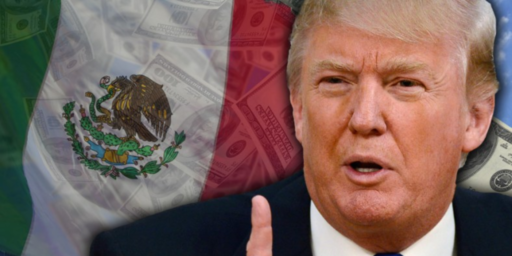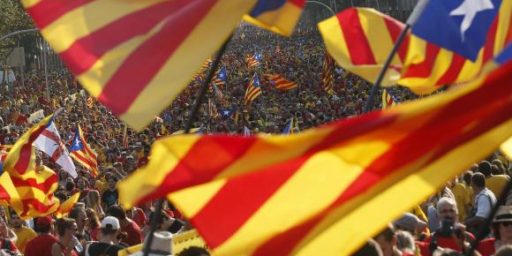Putting Cinco de Mayo into Context
I would highly recommend the following essay by Oscar Casares from the Austin Chronicle: Holiday of Cinco de Mayo is minor event in Mexico. If anything, it underscores how Cinco de Mayo is probably a bigger deal in the United States than it is in Mexico (although granted, it is more in terms of eating tacos and drinking margaritas and beers than anything else):
Though many people in the U.S. regard this date as a celebration of Mexico’s independence, in truth, Cinco de Mayo marks the Battle of Puebla and the Mexican army’s defeat of a much larger and better-equipped French army attempting to conquer its weakened government. The victory was short-lived, as the French took over the country a year later and remained in power for the next three years. The battle itself reportedly lasted only from dawn to early evening on May 5, 1861. Compared to Mexico’s fight for independence against the Spanish empire, a struggle that lasted for more than 10 years, or the U.S.-Mexico War, which led to the defeated nation losing two-thirds of its territory — including those areas now known as Texas, New Mexico, Arizona, and California — the Battle of Puebla was little more than a skirmish in the country’s long and bloody history. Today in Mexico, Cinco de Mayo will be commemorated primarily in the state of Puebla and recognized during a small ceremony in the capitol.
In terms of up here in Gringolandia:
The date gained more attention in the 1980s when marketers, particularly beer companies, saw this as a perfect opportunity to capitalize on the celebratory nature of the holiday. This week Cinco de Mayo will be celebrated with festivals and parades in places like Raleigh, North Carolina; Midvale, Utah; Atlanta, Georgia; Omaha, Nebraska; some with large Mexican or Mexican-American populations but many without.
[…]
Of course, if you happen to not speak Spanish, Cinco de Mayo is much easier to pronounce, no matter of how many margaritas are involved. So a facility with the language and how this lends itself to marketing products around the holiday certainly must also play a role.
Just imagine a beer company trying to fit Dieciséis de Septiembre on a beer koozie.
Dieciséis de Septiembre is the more significant date in Mexico, i.e., the start of the struggle against the Spanish, which is a much bigger deal than Cinco de Mayo.






Of course, St. Patrick’s Day only became a BIG holiday in the US as well. I think its still a bigger deal here then it is in Ireland, although its prominence has grown in Ireland, particularly as the Irish have become more independent.
I also read somewhere that the whole reason the French invaded was that Mexico had defaulted on its debt to the French. Hopefully, that example won’t be followed with Greece.
St. Patrick’s day is basically a religious feast day in Ireland. The big secular holiday is here in the States.
A notable difference between the two holidays (and Columbus Day or Pulaski Day) is that I don’t see a lot of complaints that displaying an American flag on any of those days disrespects the Irish, Italians, or Polish.
I mentioned that my dad taught school in East LA. When I was little I used to go to his school’s carnival … on Cinco De Mayo. Kind of interesting, in retrospect.
In other news, the Continental Congress actually voted to secede from Britain on July 2, 1776. And, there is no Santa Claus.
Cinco de Mayo has been celebrated in California since the 1860s, initially as a celebration of heroic resistance against colonialism and later as a celebration of pride in culture and heritage. The national spread of its popularity in the late 20th century probably has at least as much to do with its longtime importance in the media capital of Southern California, as with the commercial interests of beer companies as claimed by Casares.
Casares is probably just playing the curmudgenonly grinch, a common enough species among newspapermen.
GOOD GOD, WHAT WOULD HAVE HAPPENED IF THEY HAD BEEN HAVE BEEN IN POSSESSION OF SAY A COUPLE OF CHRISTMAS CARDS ALSO?!?!?!!!!!!
It’s all good, I say next cinco what ever the **** we have some mass illegal alien flag burnings. You know hatetest properly like the liberals do?
It’s like, Dude if your so proud of Mexico what the **** are you doing here talking **** about my country while living of my taxes?!?!?!?!?!
The answer.If you were not educated in Mexico your gonna be mighty stupid when you get here but if you got here and were educated be liberals, lol……
California lol, what do you say we give back that peace of **** to the peace of **** across the border? Damn talk about saving some money and some headaches. Then we build a wall. Hell I could use a good shovel ready job like that. And just to let you know I will pick crops and I’m not that bad of a Gardiner:)
Will work for tax money, er, food, er, smokes……